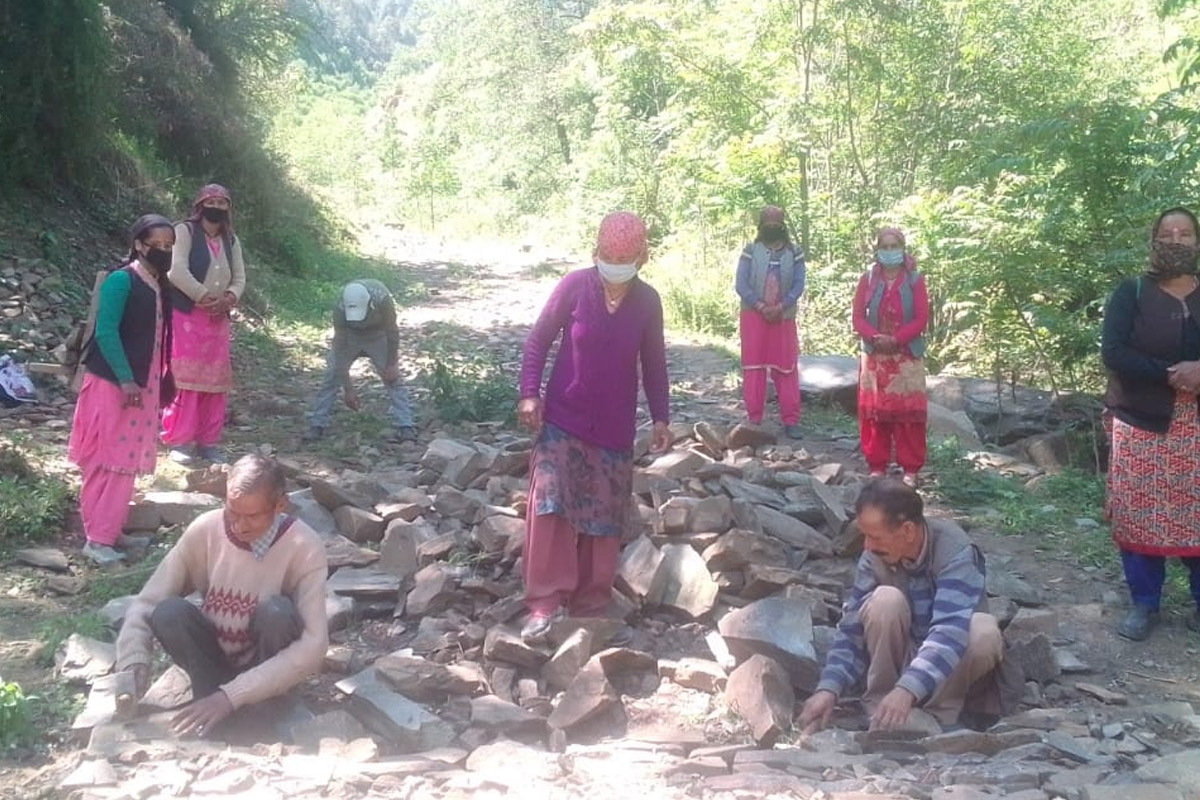Amid protests about blocking funds of the Mahatma Gandhi National Rural Employment Guarantee Act (MGNREGA), the Ministry of Rural Development issued a clarification saying that the wage employment programme is demand-driven and fund release to states is a continuous process and Central Government is making funds available keeping in view the demand for work. The government also explained the payment process in detail.
The government further clarified that the Ministry has been making all efforts to pay wages on time. The government in its statement claimed that delays in payments are only when the pay orders have not been generated in time.
Advertisement
The government’s clarification said, “States and Union Territories (UTs) have been advised to generate pay orders in time. This has resulted in considerable improvement in the status of the timely generation of pay orders and led to improvement in the actual time taken to credit wages in the worker’s account. During the current financial Year 2023-24 as of 04 October 2023, 99.12 percent of pay orders have been generated within 15 days.
The delay in payment of wages is due to implementation issues in the states which include inadequate staffing, measurement, data entry, generation of wage lists, Fund Transfer Order (FTO), etc. In case of delay in wage payment, the beneficiary is entitled to delay compensation as per the provisions”, the government clarified.
The Ministry releases funds to the States and Union Territories based on the basis of agreed to Labour Budget (LB), opening balance, pending liabilities of the previous year if any, and overall performance. The Ministry seeks additional funds for MGNREGS as and when required to meet the demand for work on the ground.
Availability of funds is not a constraint for the implementation of the program. To ensure that Mahatma Gandhi NREGA workers receive their wages on time, the National Electronic Fund Management System (NeFMS) has been put in place.
Job cards of households can be deleted only in certain specific conditions, but not due to the Aadhaar Payment Bridge System (APBS). Updation and deletion of Job Cards is a regular exercise conducted by the States.
A Job card can be deleted too. The job card is deleted if it is a fake job card or an incorrect or duplicate job card. In case of non-willingness of a household or if a family shifted from the respective Gram Panchayat permanently the job card can be deleted. job card also gets deleted if is expired.
APBS is nothing but a route through which the payment is credited in the account of beneficiaries. There are well-defined steps adopted in this system and the role of beneficiaries, field functionaries and all other stakeholders is clearly defined.
It has been brought to the notice of the Central Government that in many cases due to frequent changes in the Bank Account Number by the beneficiary and non-updating of the new account number by the Concerned Programme Officer of the same, due to non-submission of a new account by the beneficiary on time, several transactions of wage payment are being rejected (due to old account number) by a destination bank branch.
In consultation with different stakeholders, it is found that to avoid such rejections, APBS is the best route for making wage payments through Direct Benefit Transfer (DBT). It will help the beneficiaries in getting their wage payment on time.
The Ministry has made it clear to all the States that the beneficiary who comes for work should be requested to provide the Aadhaar number but will not be refused work on this basis. If a beneficiary does not demand for work, in such case the status of eligibility for APBS does not affect the demand for work. Job cards cannot be deleted on the basis of the reason that the worker is not eligible for APBS.











